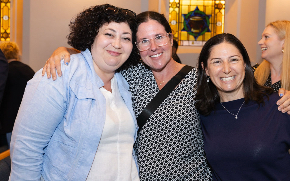Downgrading Covid-19’s threat to that of a common cold?
Could a simple drug, that has been on the market for decades, be used to treat COVID-19? A research team led by Hebrew University of Jerusalem (HU)’s Professor Yaakov Nahmias says that early research looks promising; their findings appear in this week’s Cell Press’ Sneak Peak.

Prof Yaakov Nahmias (Photo: Daniel Hanoch)
Over the last three-months, Nahmias and Dr Benjamin tenOever at New York’s Mount Sinai Medical Center have focused on the ways in which the SARS-CoV-2 (aka, the coronavirus that’s causing our current pandemic) changes patients’ lungs in order to reproduce itself. Their major finding? This virus prevents the routine burning of carbohydrates. As a result, large amounts of fat accumulate inside lung cells, a condition the virus needs in order to reproduce. This new understanding of SARS CoV-2 may help explain why patients with high blood sugar and cholesterol levels are often at a particularly high risk to develop COVID-19.
Viruses are parasites that lack the ability to replicate on their own, so they take control of our cells to help accomplish that task. “By understanding how the SARS-CoV-2 controls our metabolism, we can wrestle back control from the virus and deprive it from the very resources it needs to survive,” Nahmias explained.

SARS-CoV-2-Lung Credit Yaakov Nahmias.
With this information in hand, Nahmias and tenOever began to screen FDA-approved medications that interfere with the virus’ ability to reproduce. In lab studies, the cholesterol-lowering drug Fenofibrate (Tricor) showed extremely promising results. By allowing lung cells to burn more fat, fenofibrate breaks the virus’ grip on these cells and prevents SARS CoV-2’s ability to reproduce. In fact, within only five days of treatment, the virus almost completely disappeared.
“With second-wave infections spiking in countries across the globe, these findings couldn’t come at a better time,” shared Nahmias, and global cooperation may provide the cure. “The collaboration between the Nahmias and tenOever labs demonstrates the power of adopting a multi-disciplinary approach to study SARS-CoV-2 and that our findings could truly make a significant different in reducing the global burden of COVID-19,” tenOever added.
While there are many international efforts currently underway to develop a coronavirus vaccine, studies suggest that vaccines may only protect patients for a few months. Therefore, blocking the virus’ ability to function, rather than neutralizing its ability to strike in the first place, may be the key to turning the tables on COVID-19. “If our findings are borne out by clinical studies, this course of treatment could potentially downgrade COVID-19’s severity into nothing worse than a common cold,” Nahmias concluded.







